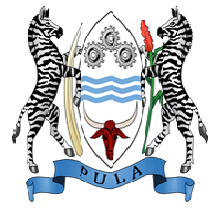Formerly the British protectorate of Bechuanaland, Botswana adopted its new name at independence in 1966. More than four decades of uninterrupted civilian leadership, progressive social policies, and significant capital investment have created one of the most stable economies in Africa. The ruling Botswana Democratic Party has won every election since independence; President Ian KHAMA was reelected for a second term in 2014. Mineral extraction, principally diamond mining, dominates economic activity, though tourism is a growing sector due to the country's conservation practices and extensive nature preserves. Botswana has one of the world's highest known rates of HIV/AIDS infection, but also one of Africa's most progressive and comprehensive programs for dealing with the disease.
Botswana is a parliamentary republic.
Source: CIA World Factbook
Members:
Resources
Displaying 31 - 35 of 57Tribal Land (Land Board Service) Regulations (Chapter 32:02).
These Regulations, made under the Tribal Land Act, concern the administration of tribal land and related matters.The Regulations provide for the constitution and abolition of Land Board Offices by the Director appointed under the Act and for the establishment of Land boards consultative committees in each land board. They also establish the Land Board (Joint Staff Consultative) Council and provide for other matters relating to the administration of land boards.
Implements: Tribal Land Act (Chapter 32:02). (2008-12-31)
Bamangwato Land Grant Act (Chapter 32:07).
The purpose of this Act is to give legal effect to an agreement entered into between the President of Botswana and a specified tribe so as to transfer to and vest in the President, on behalf of the Republic of Botswana, all the right, title and interest of the tribe to pieces of land referred to in the Agreement. The Agreement provides for compensation to persons disposed by the Agreement.
Acquisition of Property (Board of Assessment) Rules (Chapter 32:10).
These Rules prescribe the form of a notice requiring either the attendance of any person as a witness before a Board of Assessment or to produce any document before the the Board, and provide for the procedure of delivery of such notice. They also stipulate that, except as otherwise provided by the Act or any rule made at any time under section 31(1) thereof, the proceedings before the Board shall be conducted in accordance with the practice and procedure observed in the High Court in its civil jurisdiction with such variations as circumstances may require.
Tati Concessions Land Act (Chapter 32:05).
This Act confirms the full, free and undisturbed possession of Tati Concessions, Ltd. as owners of all the land within the Tati District subject to all the terms and conditions of this Act and in accordance with the present and future legislation. The Company shall have the right to minerals in land and to lease or dispose of land without conditions but Government officials shall have right to cut timber and graze stock upon any portion of land within the Tati District free of charge.
Immovable Property (Removal of Restrictions) Act (Chapter 32:08).
This Act provides for certain conditions regarding occupation of land by the State and other occupiers and the change in the form of title in land by mutual consent and surrender or abandon such land by the owner. It the stipulates that the owner of any immovable property or any person authorized to act on his behalf in the matter may apply to the Registrar of Deeds for the alteration, suspension, or removal of any condition or covenant registered against the title affecting the use or occupation of the property.


